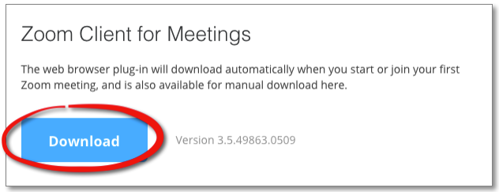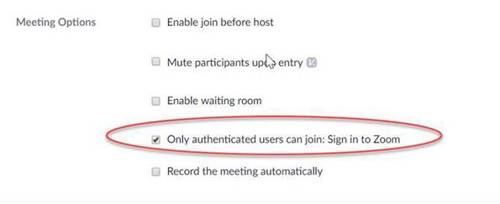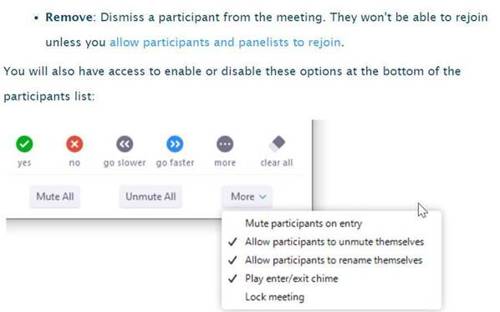You don't need an account to attend a Zoom meeting, and the platform is compatible with Mac, Windows, Linux, iOS, and Android, meaning nearly anyone can access it. However, if you wish to create a Zoom account, there are two options: a Basic Account and a Pro Account.
1. Visit USI's Zoom website to download the Zoom Client on your computer or mobile device.
For a desktop computer, please follow these instructions:
Click the Download button under Zoom Client for Meetings.

The Zoom file will be downloaded automatically. Run the downloaded file to install the app.
Note: if you have trouble finding the downloaded file, please go to the "downloads" folder on your computer, look for the zoominstaller or zoomlauncher file, and run it by double-clicking it.
2. Once downloaded, open the Zoom application and click Sign In
3. Sign in with SSO
4. Type USI as the company domain
5. Log in using your myUSI username and password
For mobile devices, download the Zoom app the same way you would download any other app: the App Store or Google Play. Once downloaded,
1. Open the Zoom application and click Sign In
2. Sign in with SSO
3. Type USI as the company domain
4. Log in using your myUSI username and password
1. Log in to your myUSI account
2. Search for the Zoom Tool

There are two ways to join a scheduled Zoom meeting:
1. If the host of the meeting has sent an invitation, then click on the link following the text “Join form PC, Mac, Linux, iOS or Android:” provided in the email or calendar invitation.
2. If the host shared the Meeting ID by another method, then you may join the meeting by logging in to Zoom via myUSI, clicking the Join button and then typing in the Meeting ID.
Zoom offers the ability to change your background, and USI provides free themed backgrounds.



To view the source of this information and to learn more about Zoom, click here.